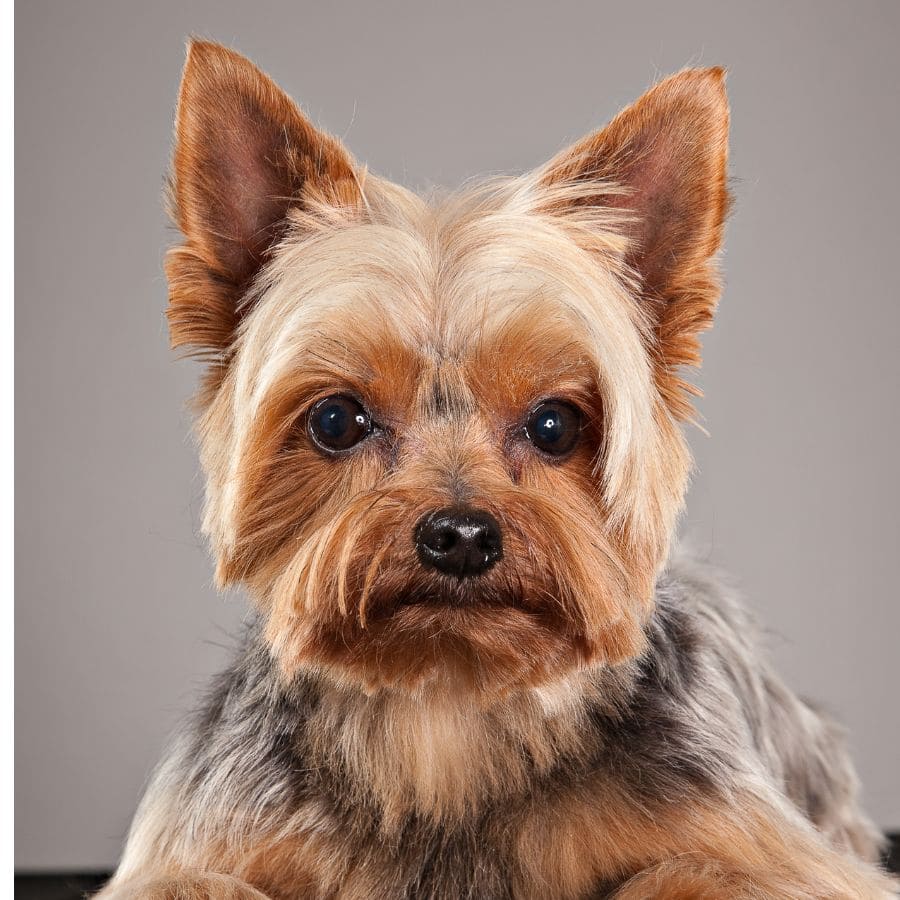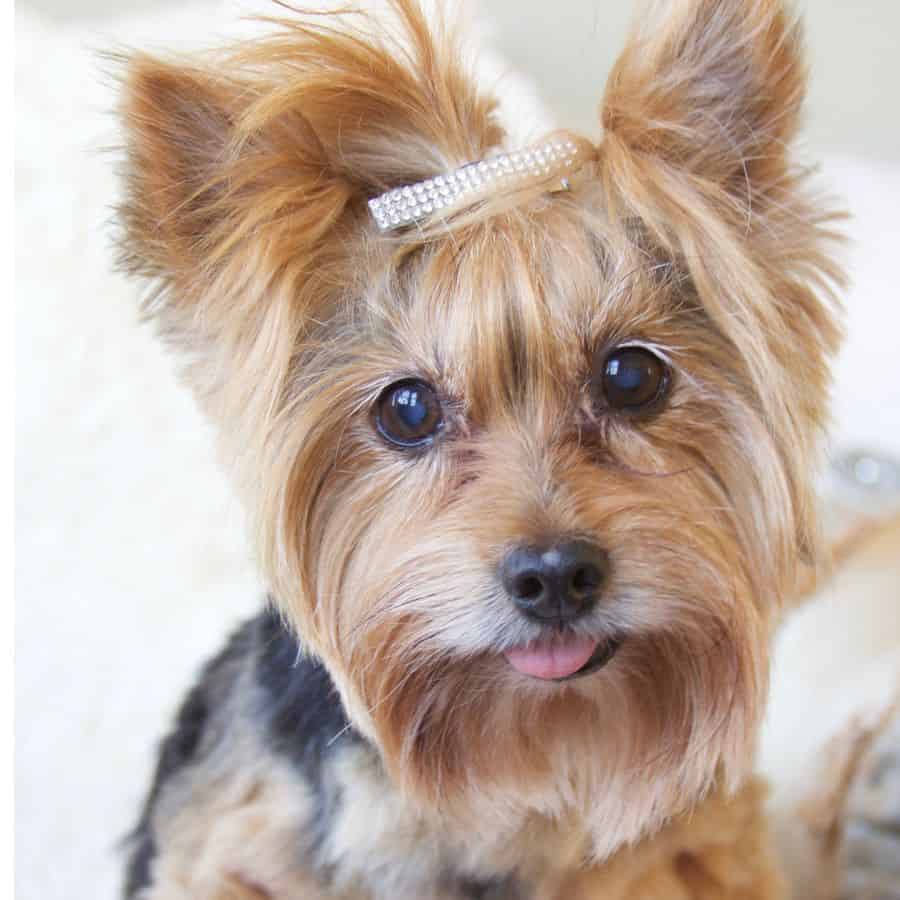Blog
Purebred vs Non-Purebred Yorkies: What’s The Difference?

When deciding between purebred Yorkies and non-purebred varieties, understanding the distinctions can help you make an informed choice. You know how people say, “It takes all sorts to make a world”? Well, that’s pretty much what we can say about the endless debate about the importance of purebred and non-purebred dogs. Many people would never consider having a non-purebred dog while defending their position with many strong arguments. On the other hand, some don’t mind if their dog doesn’t belong to any specific breed or how it looks. They usually say that every dog needs to be loved, regardless of origin and good or bad genes.
Don’t get us wrong; there are so many good people out there who adore their dogs no matter if they are purebred and show dogs or adopted ones from the street. Every person has a right to love and take care of their pet in their way. However, when it comes to a breed with a long history, like in Yorkies, the importance of a dog’s origin can be significant for some potential dog owners.
We all know how we want to breed our Yorkie and what is important to us when we want to buy or adopt them. Therefore, it’s crucial to be familiar with all the facts of both sides of the medal. If you want to know all about the pros and cons of getting a purebred or non-purebred Yorkie, stay with us! We’ll provide all the information on these two options for expanding your family for one furry member.

What Defines a Purebred Yorkie?
A purebred Yorkshire Terrier is one that meets the breed standards set by kennel clubs like the American Kennel Club (AKC). These standards include a specific coat texture and color, silky, and fine hair. The approved coat colors are blue and tan, black and tan, blue and gold, or black and gold. Purebred Yorkies have a distinct look and temperament, confident and spirited. These have been bred for generations to be consistent.
Purebred Yorkie Benefits
- Predictable: Purebred Yorkies have more predictable physical traits and temperaments, so you can anticipate their behavior, size and grooming needs.
- Show Quality: If you want to show your Yorkie in conformation events, only purebred Yorkies are eligible. Their pedigree ensures they meet breed standards.
- Health Testing: Reputable breeders of purebred Yorkies do health testing for genetic issues, so you can find a puppy with a healthier lineage.
Myths about Purebred Yorkies
Some think purebred dogs are more prone to health issues than mixed breeds. While some genetic issues are more common, good breeding practices reduce the incidence of inherited diseases. Work with reputable breeders who put their Yorkies in the first place.
Purebred Yorkie Registration and Papers
When buying a purebred Yorkie, look for papers from a recognized registry like the AKC. This paper proves the dog’s lineage and that their parents are also purebred. Papers give you peace of mind that the breed characteristics are present.

Breeding Ethics
When buying a purebred Yorkie you need to consider the breeding ethics. Reputable breeders should practice good breeding, not over breed and take care of the dogs. Supporting good breeding helps the breed.
Training a Purebred Yorkie
Training a purebred Yorkie is fun because they are smart and love to please. Early socialization and obedience training will prevent small dog syndrome – where small dogs become too bossy. Positive reinforcement with treats and praise will keep their attention and good behavior.
Grooming Requirements for Purebred Yorkies
Purebred Yorkies have a human-like hair coat that needs regular grooming to keep it silky and mat-free. Brush them daily to prevent mats ,and trim monthly to keep their coat in shape. Their coat color will change as they mature, from black and tan in puppies to blue and gold in adults. And don’t forget dental care as Yorkies are prone to dental problems.
Purebred Yorkies vs Other Small Breeds
- Yorkies vs Shih Tzus: Both are small but Shih Tzus are calmer, Yorkies are more energetic and adventurous.
- Yorkies vs Chihuahuas: Chihuahuas are more independent, Yorkies love to be the center of attention and form strong bonds with their owners.
- Yorkies vs Maltese: Both have grooming needs but Maltese have a white coat and softer coat, Yorkies have a silkier coat that changes color as they age.

What can you expect from purebred Yorkies?
When it comes to looks of purebred Yorkies, there are many varieties. These cuties don’t have typical dog fur like other breeds. Instead, they have hair. So, Yorkies’ coats can vary from long, smooth, and silky to wavy or curly. It all depends on the type of hair their ancestors had. This also applies when it comes to Yorkies hair color mixture. Purebred Yorkies mostly have dark – black or tan colors while they are puppies. While growing up, their hair can change and become blue or gold. Another sign of purebred Yorkies is hair colors – they are always born with a specific dark color mixture, never in just one solid color.
Another important thing on the list is the price of purebred Yorkies. Considering they are among the most popular small dogs on the planet, the price reflects that fact. The exact price depends on every dog’s specific origin, ancestors’ genes, and many other factors. But generally, purebred Yorkies cost around $1200 to $1500, which is quite a price.
Purebred Yorkies can also suffer from certain diseases, which are simply a feature of their breed. Those potential health complications can be about Yorkies’ sensitivity to cold or allergies. Hypoglycemia is also a widespread condition in Yorkies – they are in danger of having abnormally low sugar levels in the blood, especially while they’re puppies. These low points are not a sign of bad genes. They’re just the potential risks of a breed. Like people, some Yorkies are more sensitive and prone to complications, but it is a generally strong, vibrant, and healthy breed.
How non-purebred Yorkies differ?
Because there are so many varieties of Yorkies hair colors and texture, it’s not that easy recognizing those who are non-purebred. The bluish color of grown Yorkies is the easiest to identify as Yorkies’ characteristics with “pure genes.” If you like visiting dog shows, you can pay attention to how Yorkies of respectable origin look and behave. This may make it easier to differ just on their looks.
The price of non-purebred Yorkies is significantly lower. There isn’t a specific price range we could determine. It’s literally up to a person who sells or gives away these Yorkies. Many people buy non-purebred Yorkies on purpose because they find them even cuter when mixed with other similar breeds. No one can deny that non-purebred Yorkies are just as adorable, irresistible, and lovable as the purebred ones.
Health condition for any non-purebred dog is the riskiest part. By mixing unverified dogs’ genes, there is always a danger of inheriting many diseases (and not just those featured of the Yorkies breed), gene mismatch, the potential of puppy inheriting the worst from both parents so many more. We can say that severe illnesses are rare because nowadays, people who mix breeds tend to be successful in selling those dogs and find them homes. That’s why it is essential to take proper care of your Yorkie at all times.

READ ALSO: 8 Toys & Accessories Every Small Dog Needs
Finding The Right Yorkie Puppies: Wrapping Up
It’s up to your personal preferences. The life you tend to provide for your Yorkie can play quite a role in deciding if you want a purebred Yorkie or not. Some people just love having a small star in the house while investing in their dogs and taking them to shows and competitions. On the other hand, some are interested only in providing a loving and cozy home for their tiny fellow. There’s no room for judging. Just keep in mind that only a healthy and loved Yorkie can be happy and fulfilled. Rest assured that they will reciprocate twice as much, no matter purebred or not.
